Fair Trade and the Environment
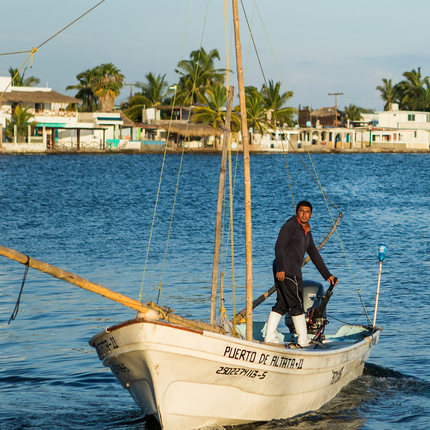
The planetary crisis – climate change, biodiversity loss, and pollution – is a human crisis. People rely on the planet to provide everything needed to live, and yet human activities are causing fundamental changes to natural environments and systems that threaten our very existence. To preserve life on earth and cultivate a prosperous future, we must act collectively to reverse the damage we can and forge new relationships with the natural world moving forward.
That change can only happen if we recognize the deep interconnectedness between planet and people. We are intertwined such that the livelihoods of communities and individuals are inextricably linked to the environment. For instance, the production of the food and goods that society relies on every day has a range of impacts on the environment – contributing to deforestation, soil erosion, contamination and pollution, biodiversity loss, climate change, and more. Those environmental shifts, in turn, impact the long-term viability of things like agricultural production.
Fair Trade’s Impact on the Environment
At Fair Trade USA™, we envision a future where these connections are recognized and seamlessly integrated into how individuals, companies, and communities operate. Embracing this will not only drive sustainable resource use and environmental stewardship, but it will also support individual and community well-being, facilitate long-term sustainable production, and ensure supply chain resiliency to the benefit of producers, traders, consumers, and the planet.
A core element of our promise, Improving Lives, Protecting the Planet is a focus on positively impacting the environment. All three pillars of sustainability—social, economic, and environmental—are deeply connected. Fair Trade Certified™ focuses on social and economic impacts, as well as ensuring workers have the building blocks for a healthy environment.
How Does Fair Trade Help the Environment?
There are three key elements of how Fair Trade helps the environment and protects the planet:
1. Prevent and/or reduce risk to local environments through legal compliance and management systems. Fair Trade standards and certification focus first and foremost on the prevention and reduction of direct harm to the local environment from production activities. Standards include requirements related to management and proper disposal of waste, hazardous materials, and wastewater. Requirements address the importance of identifying and managing risks, such as the risk of contamination of local waterways. Fair Trade certification also provides an additional level of incentive for producers to meet their region’s environmental laws and regulations and Fair Trade audits provide an additional verification (on top of local authorities) that they are being met.
2. Empower and build capacity of farmers, fishers, and workers to produce sustainably. The Fair Trade program seeks to ensure individuals have the capacity, knowledge, and funds to produce sustainably and to safeguard the natural environment around them. Challenges faced by local communities and the appropriate solutions are contextual. By empowering, educating, and supporting producers at origin, the Fair Trade model enables the prioritization and implementation of solutions that are the most meaningful and effective in their specific situation.
3. Provide funds to support Fair Trade participants’ sustainability journeys. Core to the Fair Trade model is the Community Development Fund, an additional sum of money that industry and brand partners pay to producers of Fair Trade products. That can be leveraged by farmers, fishers, and workers as they identify and implement solutions to protect their communities and natural environments.
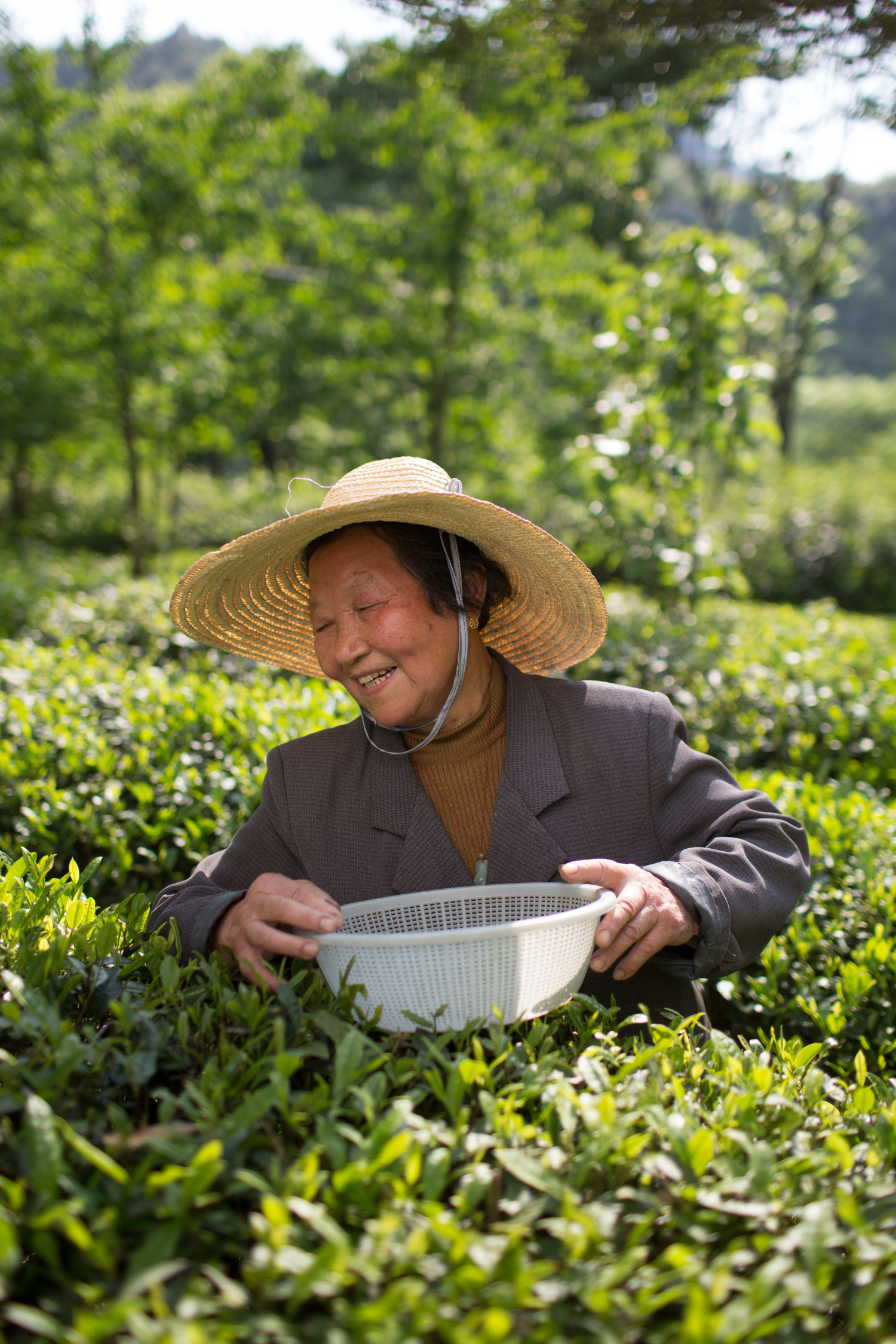
Fair Trade Environmental Standards
We have different standards to address the various parts of businesses’ supply chains.
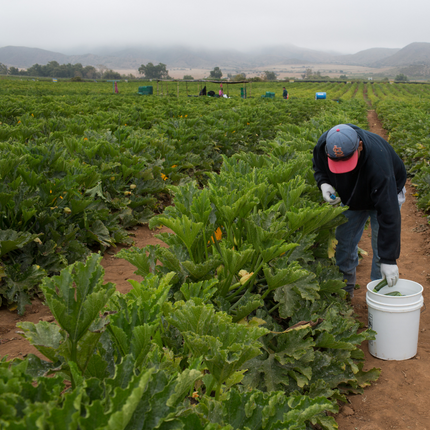
Agriculture
Our Agricultural Production Standard (APS) starts with good practices that minimize environmental impacts on natural ecosystems and improving the resiliency of crop production to both preserve the natural environment, as well as ensure economic viability for farmers.
- Deforestation and degradation of natural forest are prohibited on certified farms. For groups of small farmers, where the risk of farming in protected areas is greatest, farmers must receive training on the protected areas in their region.
- Farmers must evaluate opportunities for improving biodiversity on their property, such as agroforestry systems or intercropping, presenting the best options to improve ecosystem health, and typically improving carbon sequestration.
- Pesticides are used only on a limited and justifiable basis.
- Fertilizers are only applied based on soil analysis and the nutrient needs of the crop, to minimize any unnecessary application of synthetic nitrogen fertilizers.
Fisheries
Our Capture Fisheries Standard (CFS) focuses on healthy ocean habitats, local ecosystems, and proper fisheries management that ensures healthy oceans which absorb about 40% of all CO2 emissions.
- Fisheries Management invests in the long-term viability of species, protecting them from overfishing as well as the recovery of depleted stock.
- Biodiversity and ecosystem protections increase habitat resilience. The standard addresses everything from gear and fishing practices that can be harmful to the environment, monitoring ecosystem metrics that track changes, as well as data collection to support continuous improvement.
- Fishers in the Fair Trade program must use at least 30% of their Community Development Fund on environmental projects that emerge from a needs assessment.
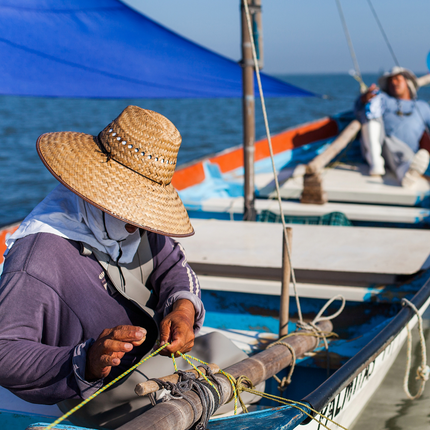
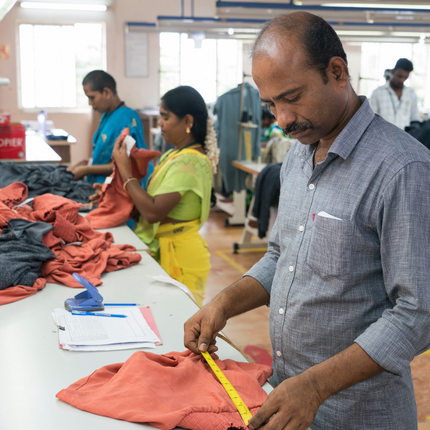
Factories
Our Factory Production Standard (FPS) focuses on limiting direct negative environmental impacts to workers, producers, surrounding communities, and the planet.
- All Fair Trade Certified factories are expected to comply with local and national laws governing the environmental practices of the factory.
- All Fair Trade Certified factories are required to implement practices related to the handling and disposal of chemicals that are hazardous to the environment or people, good waste management practices, and prevention of water contamination, which have very immediate impacts on worker/community health and the environment.
Reflections from Fair Trade Participants
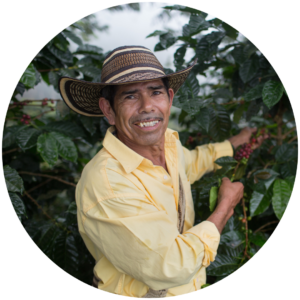
Luis Alfonso Mozo Rodriguez
“We live up here, in the forest, so we depend on it. We need to make sure we don’t poison ourselves. CAFICOSTA helps us develop and sell our organic coffee at even better prices than conventional coffee. So it works out great.”
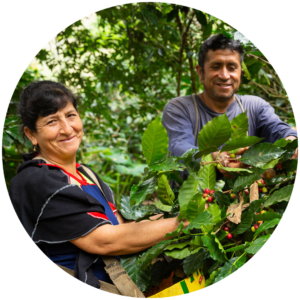
Grimaldina Guevara Calderón, Mauro Pérez Bustamante
“Now we produce enough coffee to have a better quality of life. Thanks to the cooperative and Fair Trade USA, we are researching better techniques and protecting our environment.”
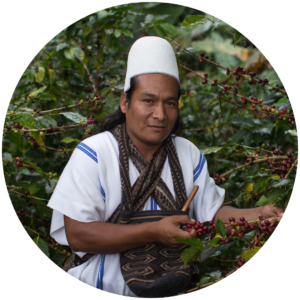
Mairo Geovanni Niño
“I have personally seen the impact of the Fair Trade program as it goes beyond simple economic help… Indigenous peoples started ANEI in the region, and either through our example, or later through the organization and the Fair Trade Certification, the issue of protecting the environment has finally become mainstream here, something we all strive for.”
Featured Papers and Reports
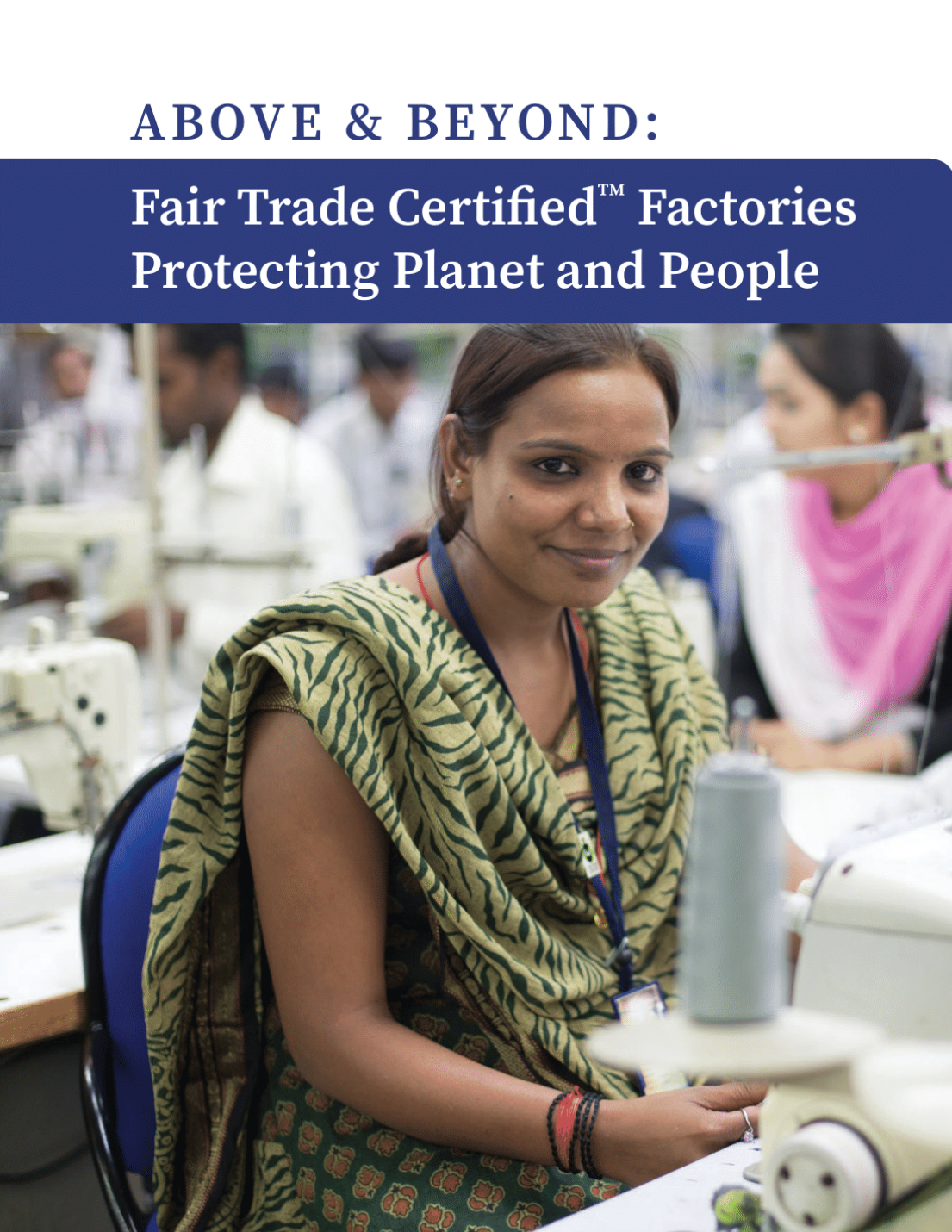
Above & Beyond: Fair Trade Certified Factories Protecting Planet and People
When it comes to managing environmental impacts, Fair Trade Certified factories regularly go above and beyond standard requirements, demonstrating a genuine passion for protecting the planet. In this paper, you can read about four of our favorite environmental initiatives that managers at Fair Trade Certified factories shared with us!
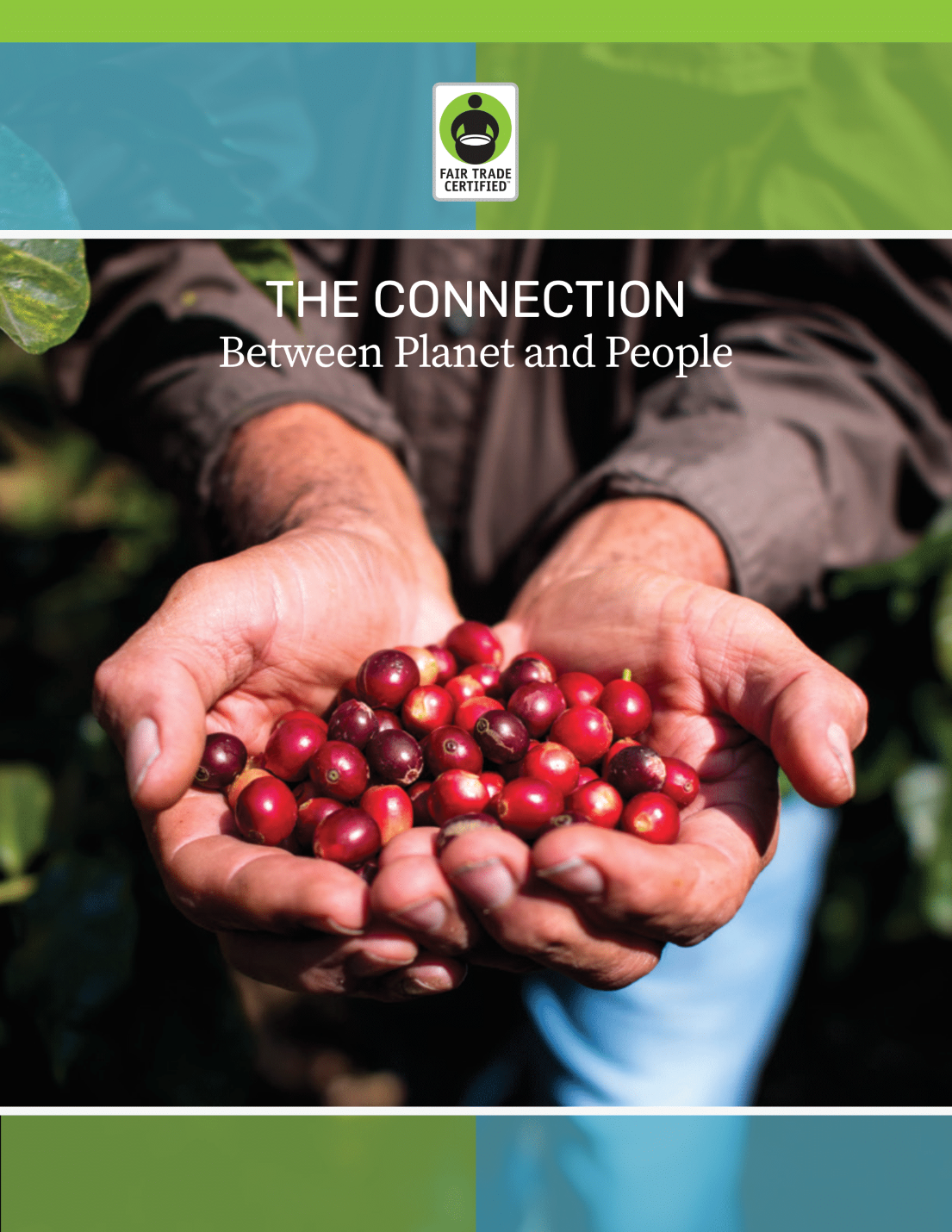
The Connection Between Planet and People
In this paper, you will learn more about:
- Fair Trade’s approach to the environment
- Environmental requirements in our standards
- Projects funded by Community Development Funds that benefit local environments
- Stories of positive environmental impact on coffee farms in Honduras, in factories in India, and beyond!
Related Blog Posts
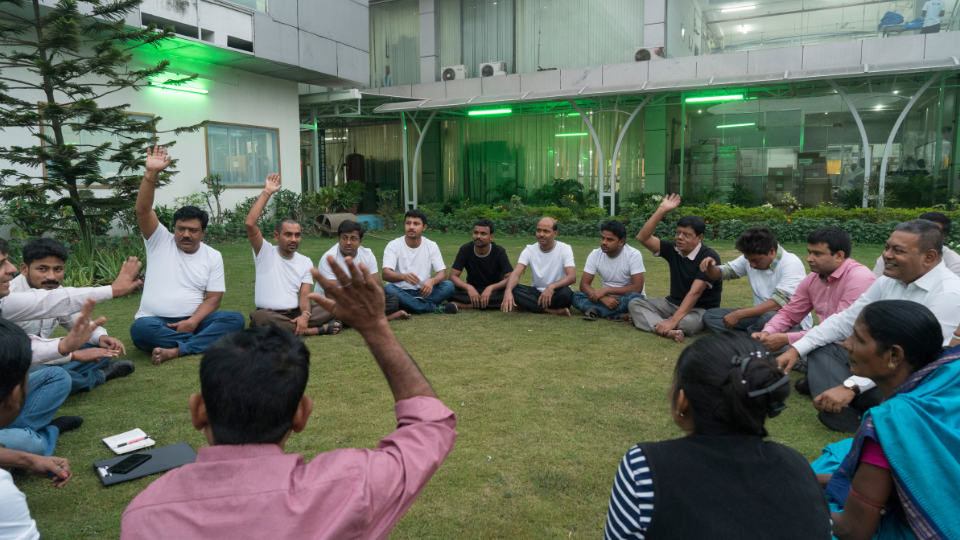
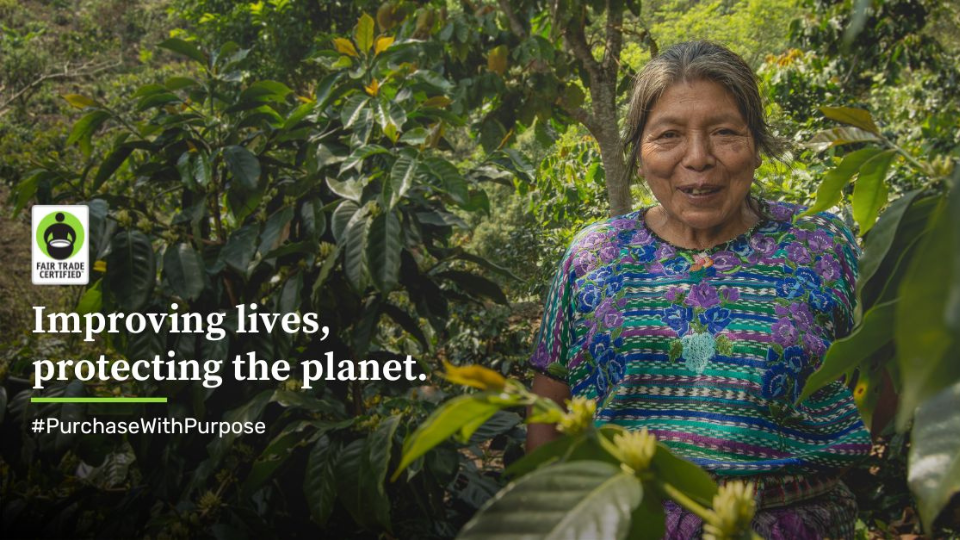
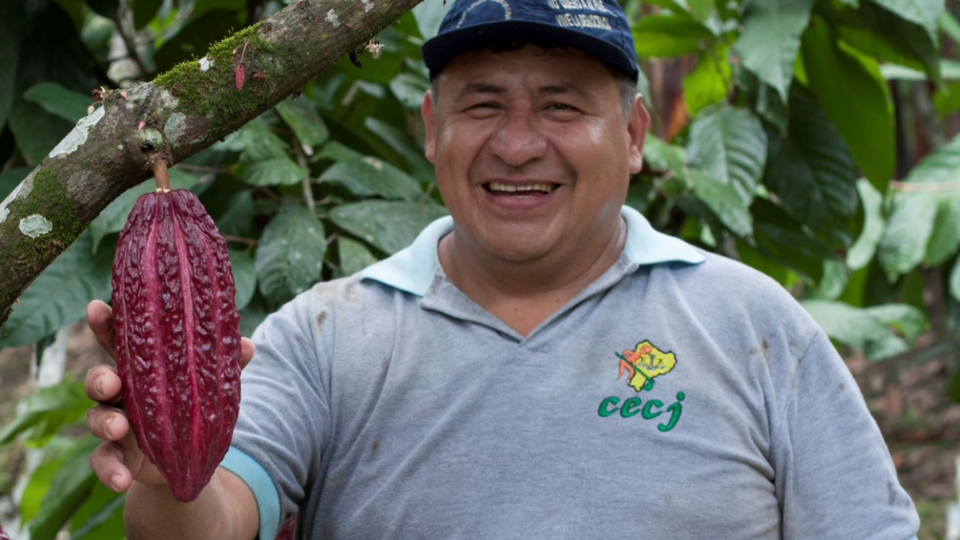
Get Started with Fair Trade Certified
Learn about sourcing, selling, and promoting Fair Trade Certified products and get started on your better business journey!